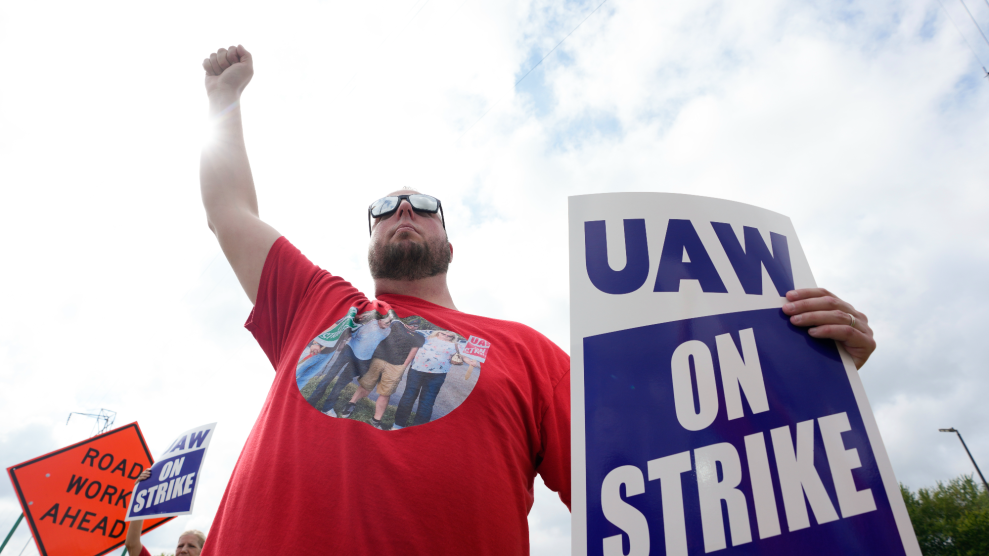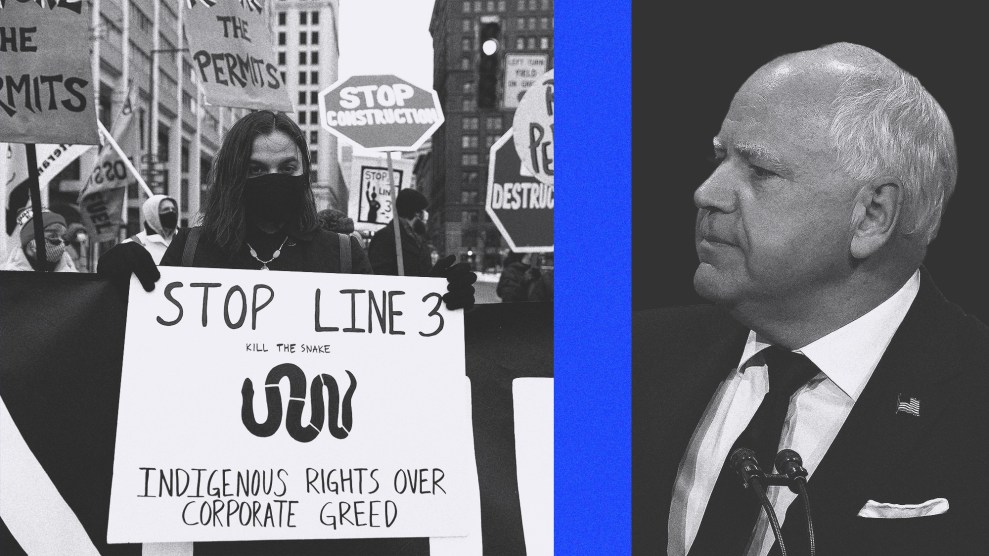
People celebrate after the United Auto Workers (UAW) received enough votes to form a union at a UAW vote watch party on April 19, 2024 in Chattanooga, Tennessee. Photo by Elijah Nouvelage/Getty Images
For decades, unionizing in the American South was like cutting a five-acre field with nail clippers: time-consuming, grueling, and largely ineffective—though not technically impossible.
But on Friday, hourly workers at Volkswagen’s plant in Chattanooga, Tennessee, defied the long-standing barriers by voting overwhelmingly to join the United Auto Workers union (UAW). Late that night, the National Labor Relations Board (NLRB) reported that 73 percent of the 3,600 workers at the manufacturing plant participated in the election and voted to join the UAW; this was out of a total of 84 percent of eligible workers who cast ballots. Reuters reports that the Volkswagen plant is the first in the South to unionize through an election since the 1940s.
“Many of the talking heads and the pundits have said to me, repeatedly, when we announced this campaign, ‘You can’t win in the South.’ They said Southern workers aren’t ready for it,” UAW President Shawn Fain told employees Friday. “You all moved a mountain.”
To succeed, UAW had to work around the so-called “Right-to-Work” laws that dominate the region, including in Tennessee. Those laws stipulate employees at unionized shops are not obligated to pay dues, which makes it harder for unions to sustain their operations and bargain on behalf of employees for better working conditions.
Southern lawmakers have also been known to incentivize manufacturers to open factories and remain in the under-unionized South by suppressing union talk. This tactic was reportedly deployed during a previous attempt to unionize the Volkswagen plant in 2014. That’s when Republican Senator Bob Corker, who represented Tennessee from 2007 through 2019, indicated that Volkswagen might only have added a production line making SUVs in the state if the workers voted against unionizing. GOP state lawmakers also threatened to cut off the state’s incentive spigot to VW if Chattanooga workers voted to join the UAW. The anti-union efforts grew less effective over time. A 2019 unionization attempt at the same plant lost by roughly 60 votes.
Friday’s Chattanooga victory comes on the heels of the UAW’s successful strikes at General Motors, Ford, and Stellantis last year, from which the UAW secured substantial raises of more than 30 percent, thousands of new jobs, and bonuses for retirees.
Strategically, this Volkswagen plant was likely a good starting point for broader efforts in the South. Germany, where Volkswagen is based, has higher union participation than the US. German law prescribes that worker representatives, who often are union members, maintain up to half of the seats on the supervisory boards of large companies. Publicly, Volkswagen held a neutral position on the union vote.
Now, the UAW can turn its focus to another German auto-manufacturer plant in the South: a Mercedes factory in Vance, Alabama, that is expected to hold a union vote in mid-May.
“I’m exhilarated that we actually accomplished what we set out to accomplish,” said VW employee Lisa Elliott, according to Reuters. “Tell Mercedes they’re next.”
















